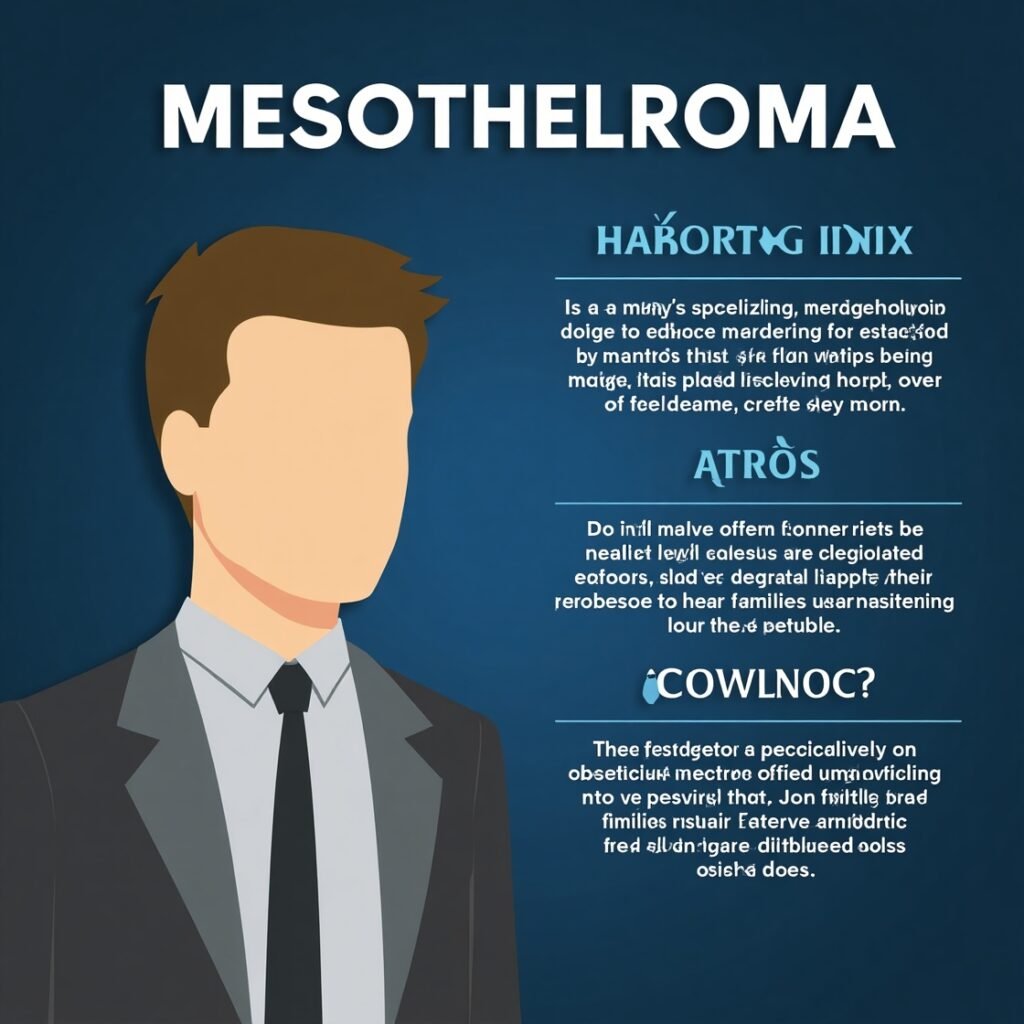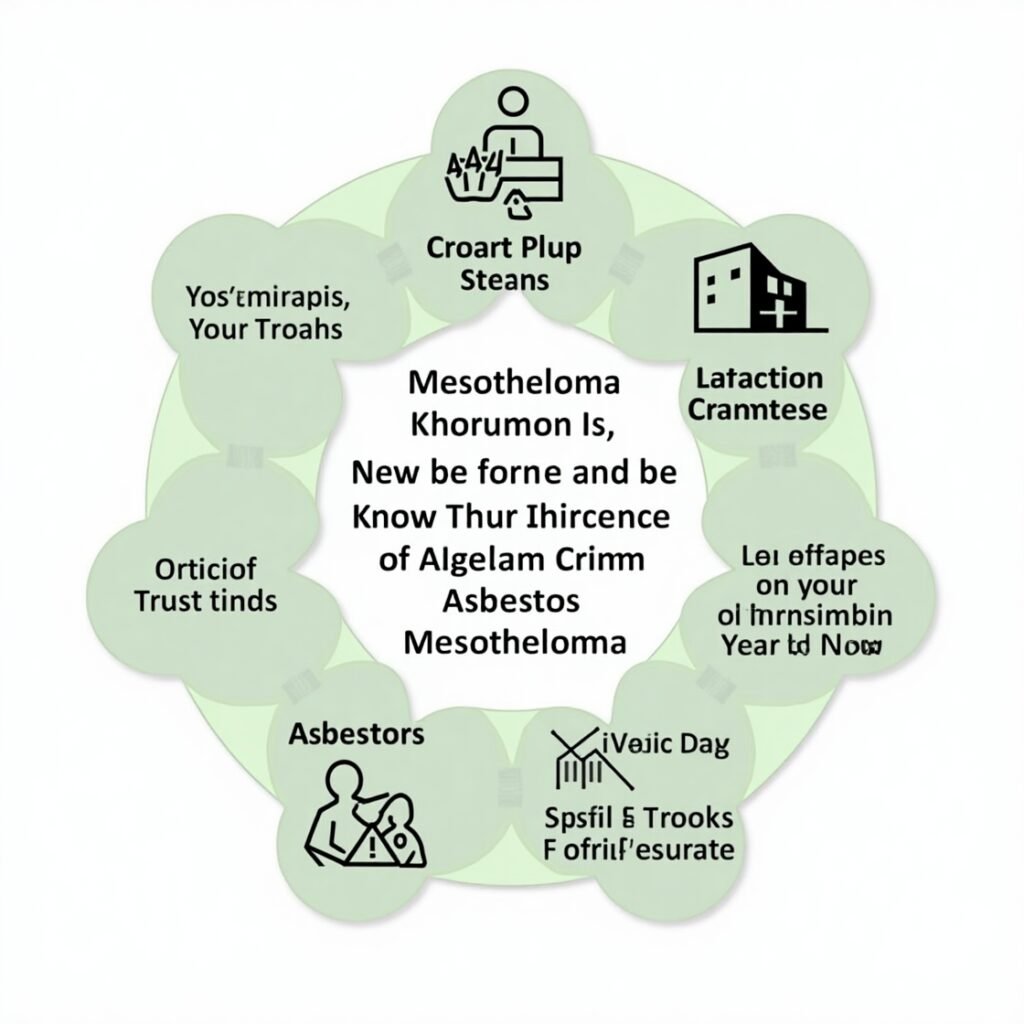
Mesothelioma, a rare and aggressive cancer caused by exposure to asbestos, is a devastating diagnosis for both patients and their families. Due to its long latency period, mesothelioma is typically diagnosed in its advanced stages, often leaving patients with few treatment options and considerable financial burdens. The cost of treatment can be overwhelming, and many mesothelioma patients face challenges in paying for medical bills, day-to-day expenses, and long-term care.
Fortunately, there are various financial assistance programs designed to support mesothelioma patients during their journey. These programs are critical in alleviating the financial strain and helping patients focus on their health rather than on mounting medical expenses. In this article, we will explore the top financial assistance programs available to mesothelioma patients and their families.
Why Financial Assistance Is Crucial for Mesothelioma Patients
Mesothelioma treatment often involves a combination of surgery, chemotherapy, radiation therapy, and palliative care. These treatments can be extremely costly, especially when patients require extended care, multiple hospital visits, and support services.
Additionally, mesothelioma patients often experience a significant loss of income. Many patients are unable to continue working due to the severity of the disease, leading to financial stress. Furthermore, because mesothelioma is linked to asbestos exposure in the workplace, many patients qualify for compensation through legal avenues such as lawsuits or asbestos trust funds. However, navigating these legal processes can be lengthy and complex.
Thus, financial assistance programs play a vital role in helping mesothelioma patients manage their healthcare costs, maintain their quality of life, and focus on their recovery.
Top Financial Assistance Programs for Mesothelioma Patients
Asbestos manufacturers and companies responsible for asbestos exposure have established asbestos trust funds to compensate workers and their families who have been affected by mesothelioma and other asbestos-related diseases. These trust funds were created after many of these companies filed for bankruptcy due to the overwhelming number of lawsuits filed by victims of asbestos exposure.
While asbestos trust funds vary in their compensation offerings, they often provide substantial financial assistance to mesothelioma patients. In many cases, victims can file claims through these funds and receive compensation without the need for a lengthy court process.
- How it works: Patients or their families can file claims with specific asbestos trust funds related to the companies responsible for their exposure. A variety of factors, such as the severity of the disease and the amount of asbestos exposure, determine the amount of compensation.
- Notable asbestos trust funds:
- Johns-Manville Trust Fund: One of the largest asbestos trust funds, created after the Johns-Manville Corporation filed for bankruptcy. The fund has paid out billions of dollars in claims.
- Astonish Trust Fund: This fund covers claims related to workers exposed to asbestos in construction, shipbuilding, and other industries.
- Veterans Benefits (VA Disability Compensation)
Many mesothelioma patients are veterans who were exposed to asbestos while serving in the military, particularly in the Navy. Veterans who were diagnosed with mesothelioma as a result of asbestos exposure during their military service may qualify for financial assistance through the U.S. Department of Veterans Affairs (VA).
- How it works: The VA provides disability compensation to veterans who have developed mesothelioma due to their military service. Veterans are eligible for monthly compensation payments, which can vary based on the severity of the illness and the veteran’s dependency status.
- Eligibility: To qualify, veterans must demonstrate that their mesothelioma was caused by their time in service. For Navy veterans, this is especially relevant, as they often worked in shipyards where asbestos exposure was common.
- Other VA benefits: In addition to disability compensation, veterans may also be eligible for health care benefits, including treatment for mesothelioma, through the VA’s health care system. This can help cover medical expenses such as chemotherapy, surgery, and palliative care.
- Social Security Disability Insurance (SSDI)
Social Security Disability Insurance (SSDI) is a government program designed to assist individuals who are unable to work due to a serious illness or disability. Mesothelioma patients may be eligible for SSDI benefits, which provide financial assistance to those who are no longer able to work because of their illness.
- How it works: SSDI provides monthly cash benefits to individuals who have worked and paid Social Security taxes and have a qualifying disability. Mesothelioma patients may qualify for SSDI benefits if their condition meets the Social Security Administration’s (SSA) definition of a disability.
- Eligibility: To be eligible for SSDI, patients must demonstrate that their mesothelioma prevents them from working for at least 12 months or is expected to result in death. The SSA has specific criteria for evaluating mesothelioma claims, and patients may need to provide detailed medical records and documentation of their diagnosis.
- Benefits: The amount of SSDI benefits depends on the patient’s work history and how much they have paid into the system. SSDI payments can be used to cover living expenses, medical bills, and other necessary costs.
- Mesothelioma Legal Compensation
One of the most significant sources of financial assistance for mesothelioma patients comes from legal settlements and lawsuit verdicts. Many patients choose to pursue legal action against the companies responsible for their asbestos exposure, seeking compensation for their medical bills, lost wages, pain and suffering, and other damages.
- How it works: Mesothelioma patients and their families can file lawsuits against companies that exposed them to asbestos. These lawsuits may result in a settlement or a court award, which can be substantial.
- Types of legal compensation:
- Lawsuit settlements: In many cases, companies prefer to settle out of court rather than face a lengthy trial. Settlements can range from thousands to millions of dollars, depending on the severity of the case.
- Asbestos trust fund claims: In addition to lawsuits, patients may also file claims with asbestos trust funds set up by bankrupt companies.
- Attorney representation: Mesothelioma patients should seek out an experienced mesothelioma attorney to represent them in legal matters. Many attorneys offer contingency fee arrangements, meaning they only get paid if the patient wins their case or settlement. This arrangement ensures that patients can pursue legal action without worrying about upfront legal fees.
- Nonprofit Organizations Offering Financial Assistance
Several nonprofit organizations provide financial assistance programs specifically for mesothelioma patients. These programs can help cover the costs of medical treatment, transportation, and other expenses related to mesothelioma care.
- How it works: Nonprofit organizations may offer grants, donations, or emergency financial assistance to mesothelioma patients who are experiencing financial hardship. Some organizations also provide resources such as counseling, support groups, and educational materials.
- Notable organizations:
- The Mesothelioma Applied Research Foundation: This foundation offers grants to mesothelioma patients to help with treatment-related costs. They also provide financial assistance for travel and lodging expenses.
- The Asbestos Disease Awareness Organization (ADAO): The ADAO offers support for mesothelioma patients and their families, including financial assistance programs to help with medical expenses and other costs.
For many mesothelioma patients, crowdfunding has become a popular option for raising financial support. Crowdfunding platforms allow patients to create campaigns and share their stories with friends, family, and the wider public to raise funds for medical treatment and other expenses.
- How it works: Platforms such as GoFundMe, GiveForward, and Fundly allow patients to set up personalized fundraising pages. These pages can be shared on social media, email, or other networks to reach potential donors.
- Benefits: Crowdfunding is an accessible option for many mesothelioma patients, especially those who may not qualify for other forms of assistance. It allows families to receive direct donations from people who want to help.
How to Apply for Financial Assistance
The process of applying for financial assistance programs varies depending on the program. However, there are a few common steps to keep in mind:
- Gather medical documentation: Most programs require patients to provide documentation of their mesothelioma diagnosis, including medical records, test results, and treatment plans.
- Research available programs: Patients should research the different financial assistance options available to them. This may include asbestos trust funds, veterans’ benefits, SSDI, and nonprofit organizations.
- Consult with a professional: Seeking guidance from an attorney or financial advisor experienced in mesothelioma cases can help ensure that patients apply for the right programs and receive the maximum amount of assistance.
- Submit applications: Once the necessary documentation is gathered, patients can submit applications to the various financial assistance programs. It’s important to carefully follow each program’s application instructions to ensure eligibility.
Conclusion
Mesothelioma is an aggressive and life-altering disease that comes with significant financial burdens. However, there are a variety of financial assistance programs available to mesothelioma patients, providing them with much-needed support during a challenging time. From asbestos trust funds and veterans’ benefits to legal compensation and nonprofit programs, patients and their families have options to help them manage medical costs, living expenses, and other financial challenges.



